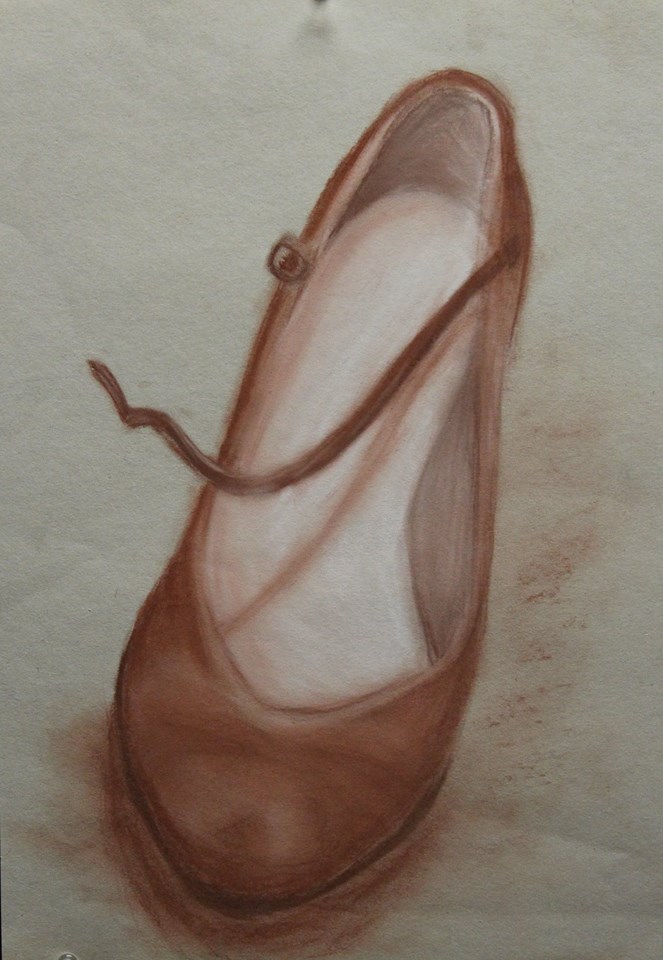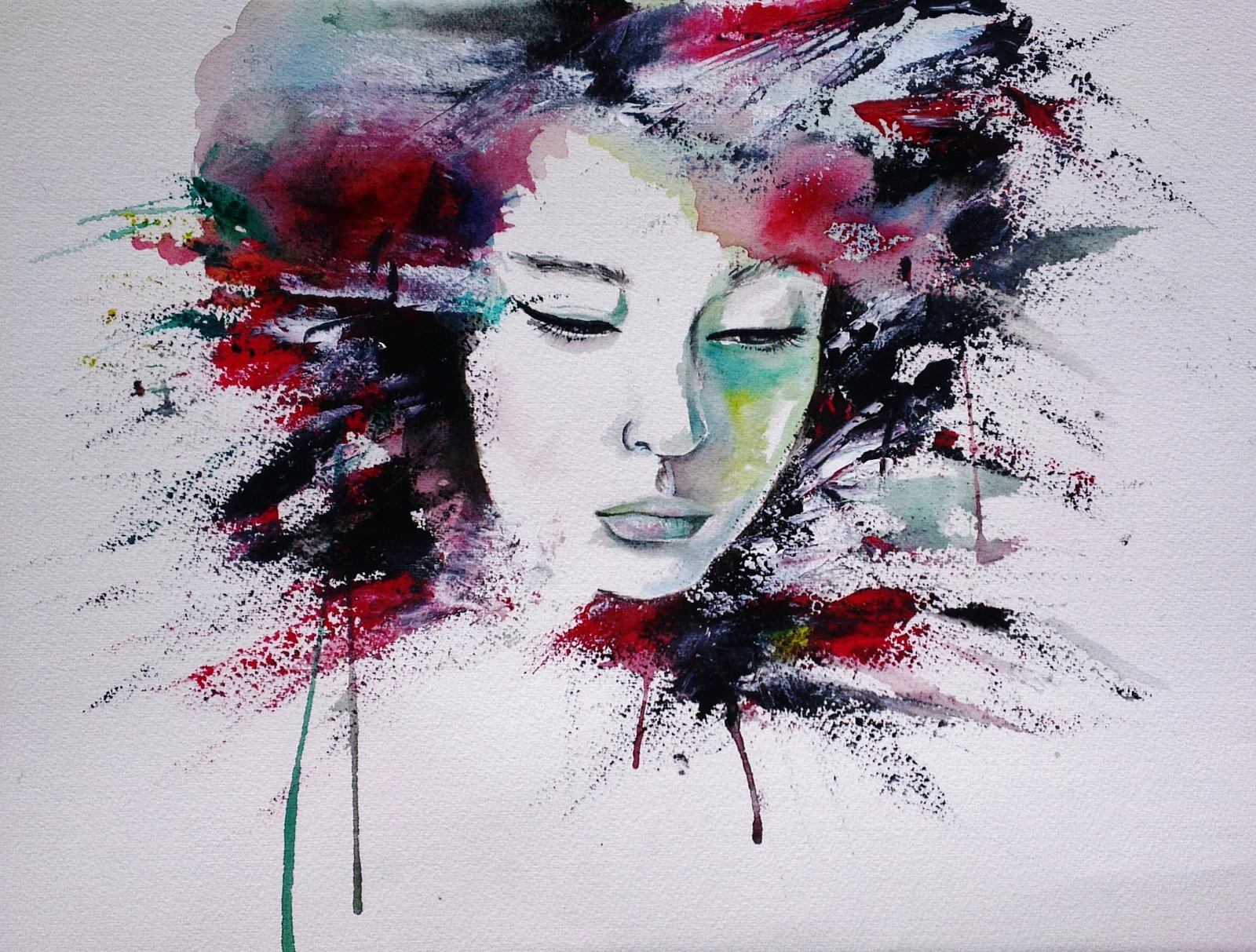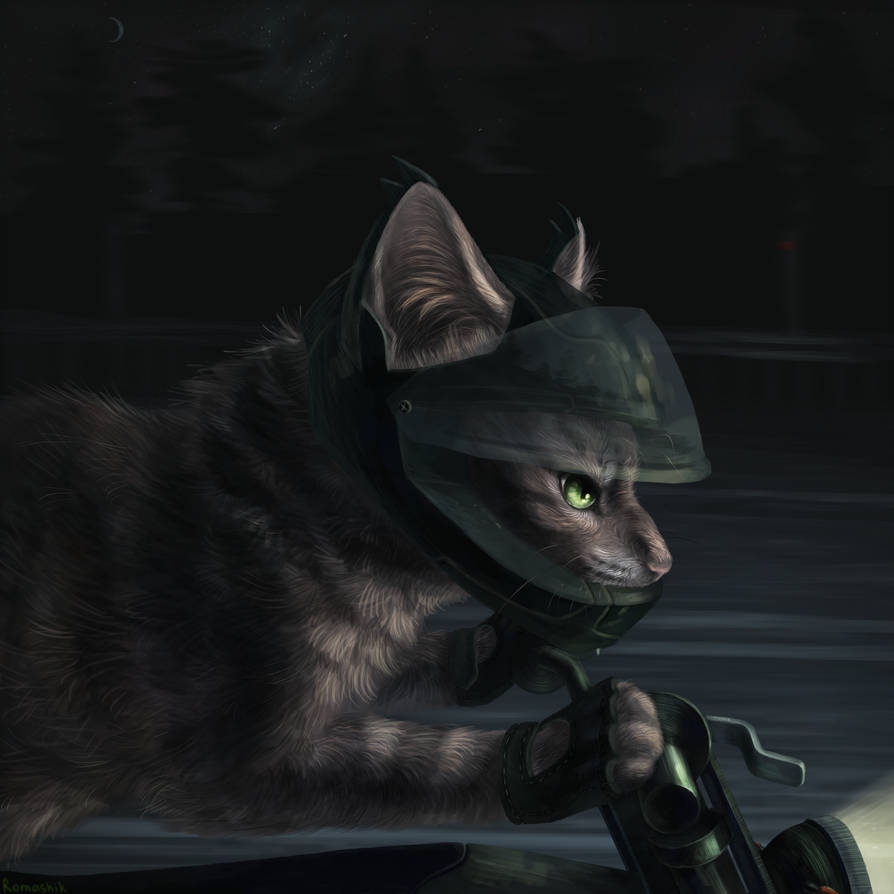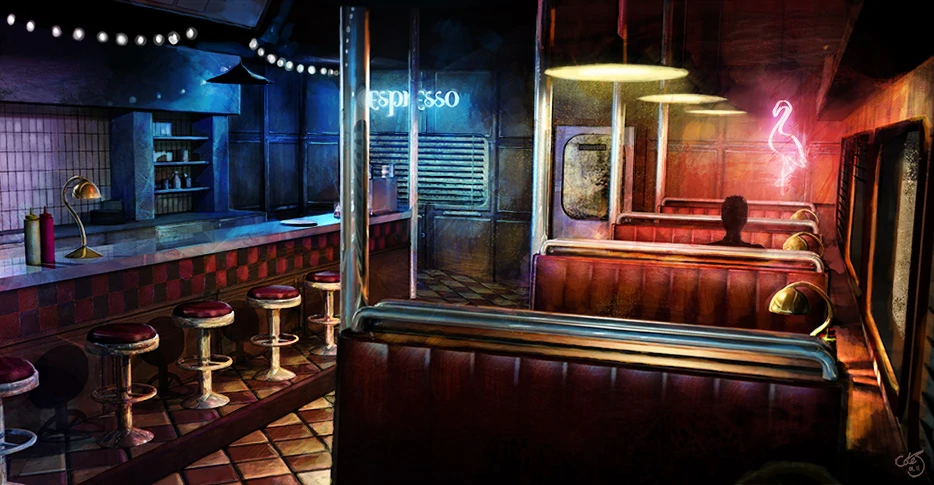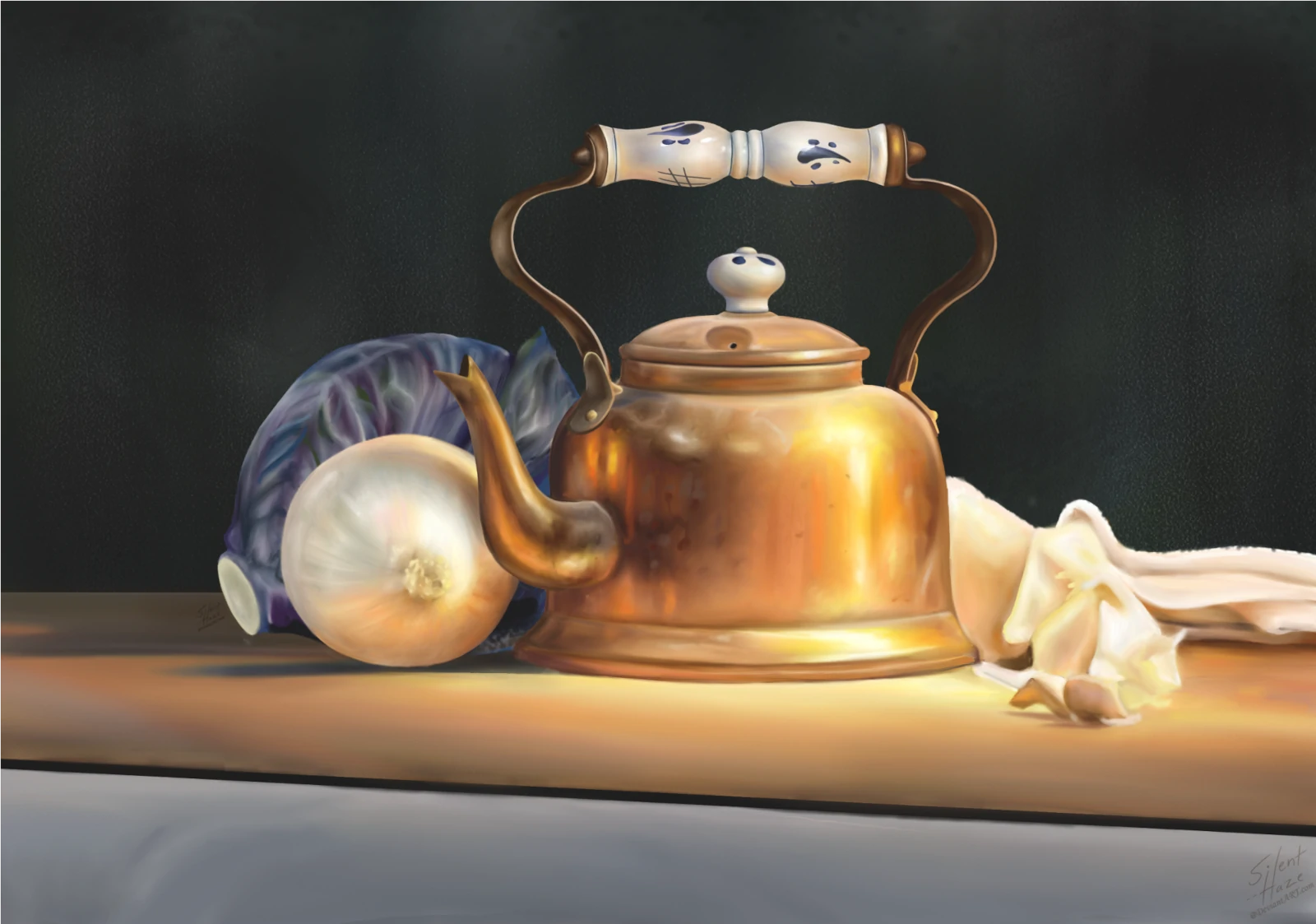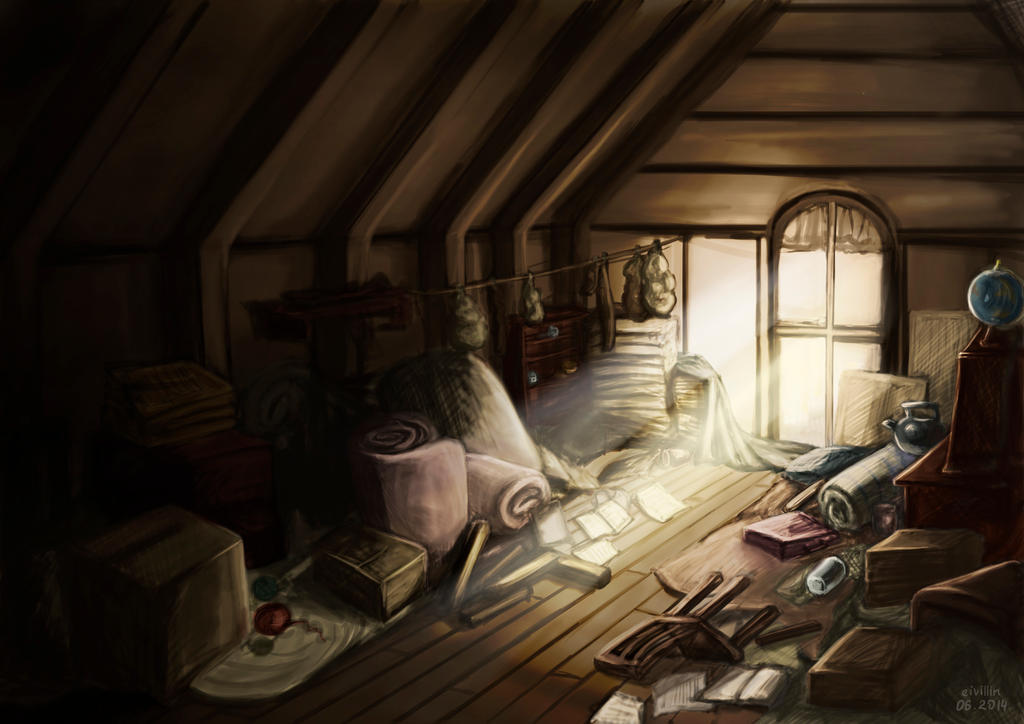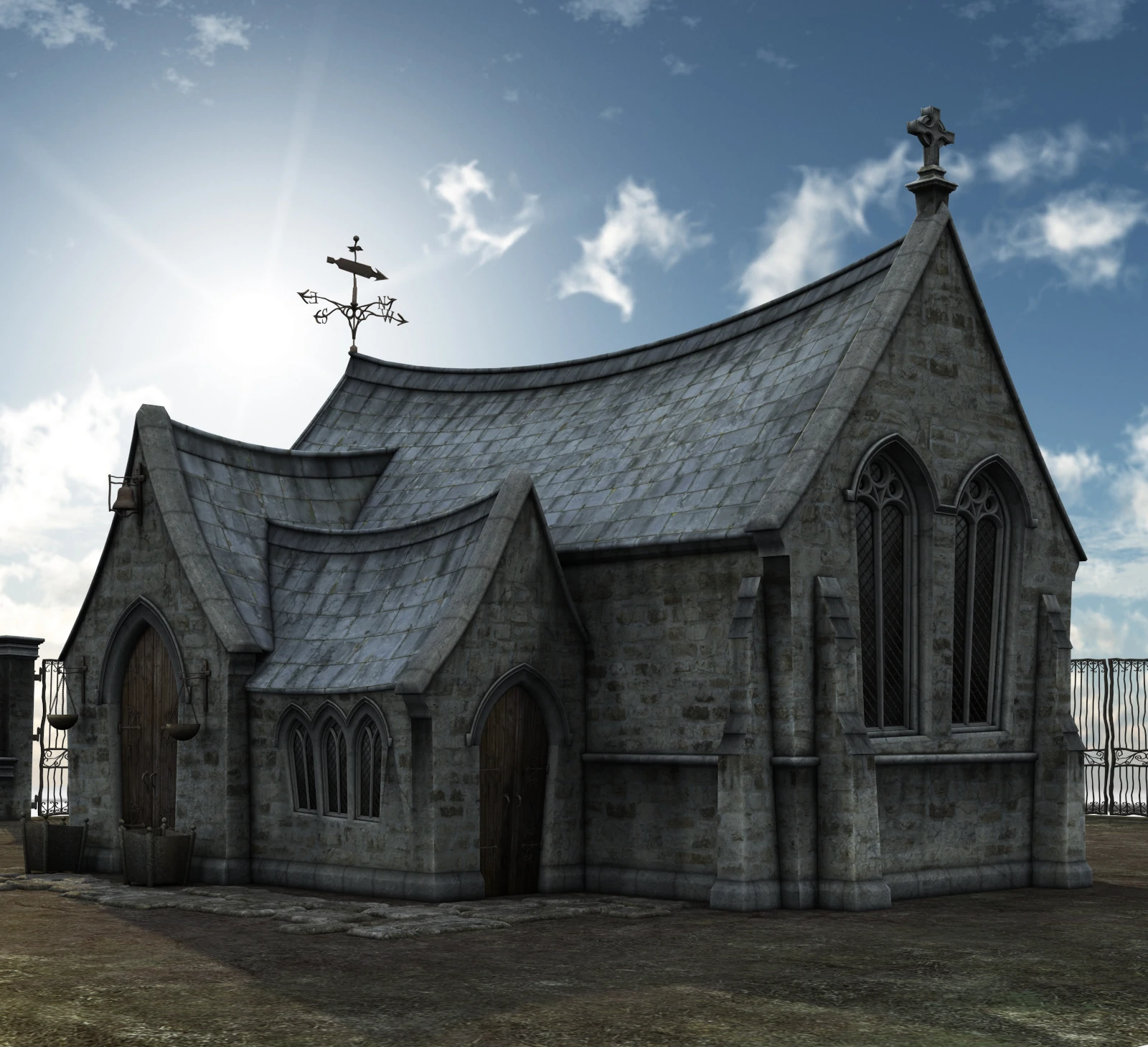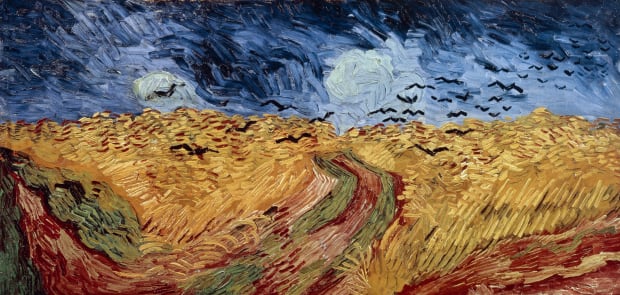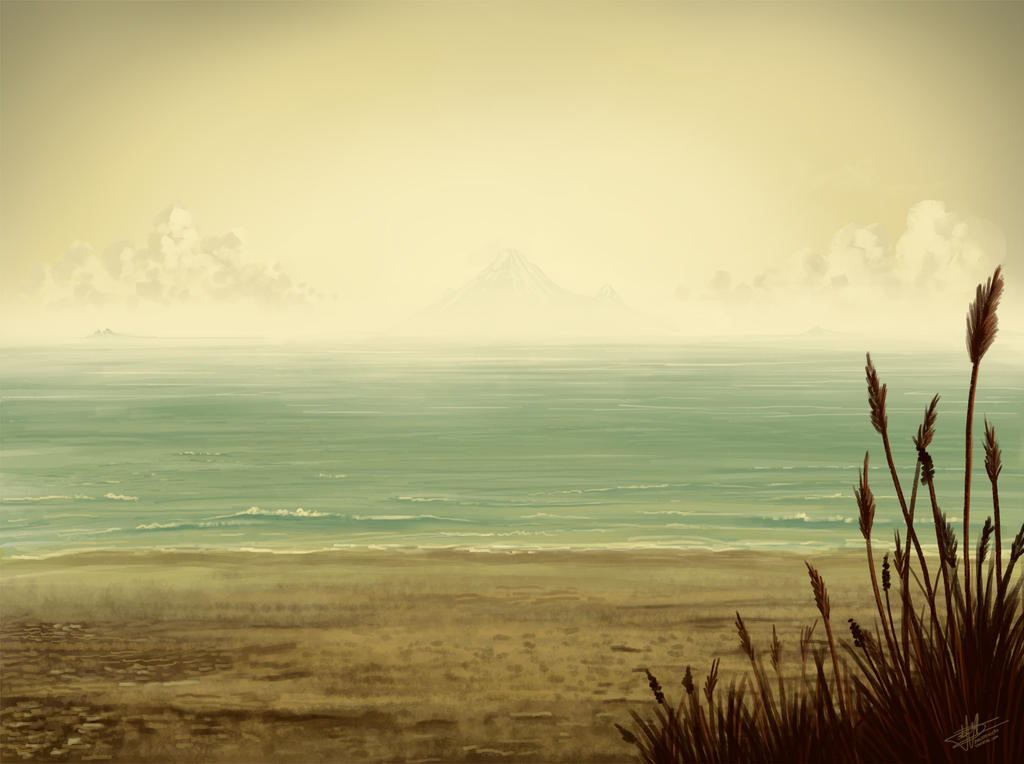The morning bell was sounding. At least that meant it wasn’t my turn to do the wake-up call. I breathe in and out between each chime, slowly counting to four in my head. I figured it must be a Monday, if not, then a Wednesday. There’s not much difference in the days here, except as to whether I get to do the ringing or not. Days grind their way into weeks, weeks into years. I’ve been here four years already, just two more to go by rights.
I hear Grainger approaching, rattling his discipline stick across the metal railings in the corridor outside. It may have shoved fear deep into me once upon a time, but not any more. But Samir, the boy sitting bolt upright opposite my bunk, he’s a new arrival. His white knuckles clutch the threadbare grey blanket right up to his chin. The panic written deep into his eyes punctuates his sallow face. He catches me staring.
“Don’t worry Sam,” I mouth slowly. “You’ll be fine,” I lie.
The sounding of the last bell hangs in the air. The percussion in the corridor comes to an abrupt stop. The thick steel door sings open and a stubby hand flicks at the switch on the wall. The fluorescent tubes on the ceiling splutter and choke, exploding into life, all except the one in the far corner that buzzes and flashes away, but never quite makes it. The sudden blast of artificial brightness hits me hard, and even though my eyes are already accustomed to the early morning sunlight, my eyes shut tight. When I tease them open, Grainger’s standing in the doorway.
He wears a shit-brown uniform that’s far too tight for his thick waist. The cloth looks scuzzy, like it rarely gets a clean. But he always keeps his black leather boots immaculate. They’re not polished and buffed up to be mirror-shiny, but moist looking, like rain-touched earth. They’re just like the Adidas football boots I got for my ninth birthday, the ones I used to rub oily dubbin in with a piece of cloth torn from one of granddad’s old shirts.
Grainger’s hair is sharply parted from the side and pasted to his scalp. They say he combs it through with hand-soap, leaving it matted and greasy, dirty looking. He stands dead still for a while, looking nowhere but at his pocket watch.
Even before he hollers, I’ve tossed the blankets aside and sat up. My digital clock reads six o two. That’s all you’ll see on the top of my cabinet. Some of the boys have a photograph, or some other reminder. But I prefer to keep memories in my head, where they’re easier to forget.
They sleep eight of us to a dorm, all in single cots, and the mattress is like rock. It’s a bit like my old schoolroom – if you took away the blackboard and all the kiddy paintings tacked everywhere that is. It’s whitewashed brick, oblong, and has a low ceiling. One side, the one facing east, is nearly all windows, lead-lined I think you call them. They don’t have locks on them, the black metal handles will give quite easily with a firm twist, but there’s no way down without bustin either your legs or your head, probably both.
Samir’s following my lead and hauls himself out of his cot. He’s only been here three days and hardly said a word. I don’t imagine he’s slept that much either. He must be at least two years younger than me, but he’s as tall, maybe even taller. He’s got thick dark hair under his nose I reckon he was born with, but his voice is yet to break. The one and only time we spoke was on his first morning, when the bell was rung. He asked me what it was, so I told him. I said about them striking it six times to wake us up. He said something about the word strike not being such a nice word because it was too violent and aggressive.
“Isn’t it much kinder to say sounding the bell?” he asked me.
I nodded. In a strange way I thought he had a point.
Six o five. Grainger barks us to order and races through the roll call. Within two minutes we’re in the washroom at the far end of the corridor. We only get to wash our faces and hands, except when we’re allowed a shower, so most days it’s a splash with water that’s warm at best, a scrub of the teeth, then quickly away. All eight of us, towels and wash-bags in hand, wearing just the khaki vests and white underpants of issue. In our wake, a trail of wet footprints decorates the tiles, and Grainger’s right boot is up the arse of anyone lagging behind.
I don’t bother asking anyone why they’re here, cutting a deal. I reckon that if I don’t ask them, they don’t ask me. Of course, most of us have done something considered bad. Perhaps some of us just plain run out of options and have nowhere else to be. I couldn’t imagine Samir doing evil from what I could see, but then again maybe he thinks the same of me.
From the age of about seven I would go and stay with my grandparents in the summer holidays, just for a week, sometimes two, to give my folks a break. I didn’t mind, especially as Nan was a much better cook than mum, and she had stuff like Dairylea cheese triangles I would eat straight from the foil wrapping and Cadbury’s drinking chocolate I’d scoff from the tin. They lived right near the sea; about three roads back from the beach in a wood clad bungalow that Granddad would re-paint the same duck-egg blue every year, on account of the salty sea air, he would say, but I think he just enjoyed keeping busy. Sometimes I would be there to give him a hand. I’d get given a small brush and pot, and told to start at the bottom. He got to use ladders, and tape a fat roller onto a really long pole for the high bits. He’d always tell me I was doing a smashing job, which made me feel great, but I’m sure he went over my bits again when I wasn’t looking, or when I got bored and slunk off to watch cartoons on the telly.
Nan and Granddad both worked part-time jobs. It meant there was nearly always one of them at home when I came to stay, and if not, there was Uncle Mike.
Uncle Mike was just seven years older than me, their youngest child. I remember one time when I asked her about him, Mum looked real flustered, she just said it was a bit of a surprise when he came along, and that she moved up to London soon after, and that there’s nothing more to tell. I got the feeling there was, but I never dared asking her again.
Uncle Mike had the big room in the roof of the bungalow. On tiptoes I could just about see the beach from the back window. It had sloping roofs on either side and the walls were plastered with posters and cut-outs from shiny magazines. I think he was still at college, at least some of the time. The best thing though was that he played football, and just like me, he supported Chelsea. I remember once, I must have been about nine, we went to the nearby fields with a gang of his mates and played ‘til it was so dark we couldn’t even see the ball. Once I’d stopped running about I felt cold and my skin started to itch like crazy. I got home and Nan ran me a steaming hot bath. It made my legs prickle and tingle even more, like I’d fallen in a load of stinging nettles.
“Stop complaining,” she said, as she scrubbed away the filth while I whimpered like a puppy. Then she wrapped me in love, in a big white towel that smelled of flowers.
Granddad is my mum’s dad. He’s got these ugly brown fingers on his right hand, permanently stained from all the cigarettes he smokes. He makes his own with a special rolling machine. I always liked the smell of his tobacco when he opened up the pouch, sweet, rich and fruity, a smell that’ll always be his.
He’d always remind me. “Don’t forget to clean those boots properly, just liked I showed you,”
“In the morning,” I used to say. He used to laugh.
Nowadays they take the coach up to come and see me, nearly every month if they can, which is more often than Mum and Dad seem to make it.
There are six dorms on this floor. Some rooms, like the one I’m in are OK. Except Samir, the rest of us have been together nearly two years and get along as fine as any. I just count my blessings we don’t have someone like Sprake in our room; he’s in the next dorm down. I pity the poor souls stuck in there with him, cause he’s super handy with his fists and eager to use them. He’s one of those kids who was a full grown six foot man by the time he was twelve, probably fucked a girl by then as well, at least that’s what he’ll brag to you when he gets you cornered in a corridor, one on one, blocking your escape with his outstretched arms. Then he spits you his tale, full details and all; how he did it, how many times, how good it was. Really wanting to make you feel shit cause you ain’t done it yet. He’d then laugh like a crazy and call you a faggot, lean in right close and whisper that you might be next on his list.
Sprake don’t hide his story. He came home from school one day and found his dad stone dead in the garage with a hosepipe plugged in the Ford’s exhaust. He blamed his ma.
At seventeen he’s one of the oldest boys here. I reckon he’s hoping to secure legendary status before he’s moved up. I just try my best to stay out of his way. I even once saw Grainger sweating bullets in his presence.
“Do we have school today?” asks Samir. We don’t have lessons at weekends, which means that today will be his first proper day. So far he’s just sat on his bed with his head buried in a book. Reading. Then sobbing. It does that to you on your first days. The loneliness shoves the fear of God right down your throat, a painful reminder that you’re stuck here for a long while yet, and all you can see are nightmares ahead.
“Yeah,” says Hodgson, “you’re in with me. Come on, I’ll show you the way.”
Paul Hodgson; he sleeps in the bunk right next to Samir. He’s got the innocent looks of a choirboy, due to the chubby face and pudding bowl haircut I suspect. He once told me that he’s in here for something he didn’t do, and I for one believe him, I really do. He never even complains. I think it must have been a pretty bad world he left behind to prefer being locked up in here. To everyone here, he’s known as Hodgy and he’s the one been issued with watching Samir.
I once had a watcher, but out of the blue two years back he vanished. It was really weird cause he wasn’t due for transfer. I’m sure he would have told me if he’d known he was going. He would never have just left without telling me first.
I make a silent wish that Hodgy looks out for the boy, at least as well as he can, cause the new lad’s yet another fragile one.
Lessons start at seven, Grainger’s at the door at ten to, and anyone not ready gets an earful of spit and coffee-stale breath. It’s not something you want repeated once experienced, so I’m always set. The teaching block is across the yard, so we take the stairs four flights down. The stairwells smell like bleached recently peeled onions, and slippy damp spots lurk from an early morning mop. The fresh air in the recreation yard is a heavenly respite, but over all too quickly. We siphon off to our classrooms and before lessons begin, we take a room-warm half-bottle of milk from the crate, something to see us through ‘til breakfast.
“Yes Mr Grainger,” I recognise the alto voice as Samir’s. I look round to see he’s the only boy still in the yard, cowering in front of the orderly like some bewildered animal, flinching as Grainger threatens him with his stick. I make another silent wish. It’s all I can do.
To this day, I still believe that I saw Father Christmas the year I turned seven. Hard to believe, but it’s a memory that just won’t budge, so it must be true. The open coal-fire had long gone by then, replaced by a modern gas thing, so I can’t say how the big fella got in, but I was lying in bed, and saw this bright red suit and white beard flit across the hallway. I’m as sure of it as eggs is eggs. I wasn’t even keeping a watch out for him, not sure I even believed in him by then. I knew that the small glass of sherry and mince pie we put down every year ended up in dad’s belly. Mum and dad believed me. I could tell that they did. Just as a few years later, I could tell when they didn’t.
I’m still hanging on to that Father Christmas story, along with memories of early birthday parties, when we wore paper hats that didn’t fit properly, and played pass-the-parcel, and musical-chairs, and ate ice cream and jelly, and farted eggy farts from laughing too much as we rolled around the floor. And of those days when mum took me to see amazing creatures in the zoos, and bones of dinosaurs in the museum, and dad teaching me to skim pebbles across the sea, and how to tie my shoelaces in a double bow.
Not long after I arrived here, I got Allison as my watcher. He didn’t much like being called that, so he said to call him Tom. I wouldn’t recognise the twelve-year-old that arrived here, he’s a stranger to me now. I was a small kid, thin too, with straight reddish-brown hair that fell over my eyes, hair that two weeks in I hacked off with a kitchen knife when the Uniform’s back was turned.
Tom was from somewhere up north, and would say things like aye, and, sure as eggs is eggs. Small things that made me smile inside, just a little. I think it’s the small things that you need to hold on to in life, just to survive.
“Keep your head up, your eyes open, and your tongue held,” were Tom’s golden rules. It was good advice. I’d seen how the ones that walked about looking beat already hadn’t a chance in hell. I’d seen stuff that no kid should ever have to see. Once I saw the Uniforms having to scrape this poor young kid, all spittle and blood across the floor whilst Grainger beat back hyenas. The last I saw of him was being carted off in an ambulance. But however much you kept your head down, if you were in the wrong place at the wrong time you would get a whipping of some form, whether it be from the fists of Sprake or the discipline stick of Grainger. That’s just the way it is. With Tom by my side, I reckon I got away pretty lightly. He told me how to breathe when I couldn’t and not to walk where I shouldn’t. To neither make friend nor foe of Sprake, or to fall in with the weak ones either, “cause you’ll end up being eaten alive,” he would say.
“What’s that you’re readin?” I ask Samir. He’s propped up in bed. He’s even smiling, looking like a huge weight has been lifted from his shoulders. A thin beam from a torch illuminates the page. Behind him sits a beautiful full moon, but there’s some fluffy cloud floating about in front of it. Masking it, just for now.
“It’s about a seagull,” he replies. His high-class voice has an accent from somewhere I’ve never been. “Hodgson lent it to me.”
I knew the book; it was one of the first ones that Tom gave me.
“You know the one,” interjects Hodgy.
“Sure do,” I say. I thought the big fella was fast asleep.
“Your boy got through the day OK then Hodgy?” I ask.
“So far, so good,” he replies.
Samir carries on reading. The clouds disappear. The moon is beautiful. I sink down and pull the blanket over my head. It was the first night in four that his sobbing didn’t wake me.
I’d set the alarm, but was awake long before six. I dressed, and waited by the door. The other boys are still sleeping as the sun shows itself over the top of the schoolhouse. Grainger opens the door. He leads the way. I follow. It’s a different Grainger. There’s no frenzied stick bashing this early of a morning. There’s no truculent eyeballin. Maybe there’s no need cause no one’s watching.
The bell tower is two flights up, forever dim, musty, and cold. I take hold of the rope and wait. Grainger raises an arm and checks his pocket watch. I have to watch him closely. The moment he lowers his hand I pull. The rich timbre of the bell fills the morning air. Some days the sound fills me with fear, a reminder of a past I can never erase and a future too distant to see. Other days it fills me with peace.
I don’t know why Grainger just can’t ring the thing himself, or even why we need it as most boys have alarm clocks. Even the amiable faced early morning Grainger offered me nothing when I asked him once.
“It’s tradition, lad. Our tradition,” was all he said, an air of resignation hanging from his words. He walks me back to the room and soon enough the sound of his stick echoed through the hallway once again.
That particular summer when I went to stay with Nan and Granddad was a proper scorcher. Mum and Dad had gone abroad for their first proper holiday together since I was born. I’d just turned twelve. Granddad got the duck-egg blue out as usual, but we had to stop when the sun got too hot and our shoulders started turning red, so there was lots of lemonade drunk, and loads of trips to the beach with Nan in between. The sea still felt icy cold, but Nan said I had to brave it and cool down for a bit.
I remember we’d finished painting the house on a Thursday, and we went out to a pub in the evening. That was the first time ever that I felt like a proper grown up, sitting there in the beer garden, swinging my legs under the bench as we sat quietly under the sun umbrella. Granddad had his pint of beer, Nan and me cokes, mine with a red straw. Granddad smoked his fruity roll-ups; I munched on my packet of cheese and onion crisps, whilst Nan just sat with her thoughts. Uncle Mike came too, but he was inside somewhere, throwing darts with his mates.
“Have you picked your horses yet, Granddad?” I asked. He liked the horse racing.
“No, not for tomorrow, but I’ll have a go Saturday,” he paused, “with your help, of course.”
“Don’t forget, love, we won’t be here on Saturday,” Nan interrupted. Granddad raised his eyes and made that funny shape with his mouth that he used to do when Nan wasn’t looking, dropping one corner so that the veins bulged purple in his neck. He knew how to make me laugh.
“Oh yes,” he winked at me. “It’s young Mary from the post office’s wedding. Never mind, son, there’s always next week.”
“OK,” I said, not too bothered, and went back to munching my crisps.
Saturday afternoon came, and Nan and Granddad went off to the post office lady’s wedding. They looked real smart in their best clothes, but I felt sorry for Granddad all tight in his suit and tie. It was already a baking hot day, and he looked like he needed to breathe. After all, I was hot just in a vest, but never too hot for an afternoon of footy with Uncle Mike and the boys.
We had toasted cheese sandwiches and cocoa for dinner, and I was in bed with a comic by eight. I heard the front door slam soon after, but there were no voices. I knew Nan wouldn’t be home yet since they said weddings go on forever. I thought that maybe Uncle Mike had to pop out for something. I realised then that I was completely alone in a house for the very first time in my life, and I didn’t like it one bit. All of the don’t worry, he’ll be back in two minutes, brave boy stuff I was telling myself wasn’t working, I really needed to hear Mum’s voice. So I crept out of my room, my bare feet floating lightly over the carpet. The only telephone was in the hallway, and I’d learnt our home number by heart. I sat on the floor and dialed. My mind was throbbing. The phone carried on ringing for ages. Part of me wanted to believe that Mum would eventually pick up, even though I knew she was sunning herself in Cyprus. Surely mums can do that; they’re supposed to, aren’t they? It was still ringing as the front door opened. Uncle Mike was back.
“Hey there pipsqueak, what’s up?” he said. “Jesus, you look scared.”
I did. I was. But I was also relieved he was home. I hung the phone up quick. He didn’t ask me who I was calling.
“Sorry little man,” he said, “I just had to pop out for something.” He winked and leant in. “Come on, let’s see what’s in the fridge.” His breath smelled odd, mouldy, like some stuff I once sniffed from a jam jar in Granddad’s shed when he wasn’t looking.
There was cake, there was chocolate, there were even cans of lemonade.
“Let’s go upstairs for a midnight feast,” he said.
So we grabbed an armful, went up to the room in the roof and scoffed away. I forgot being scared. I don’t even remember falling asleep.
But I remember waking up. I remember the sickly smell. I remember thinking that something was very wrong. I remember wondering where my pyjama pants were, and why he was rubbing sticky stuff over me, down there. I remember him saying that it was good for me and would help it grow, like it was some type of fucking manure! I remember knowing this was wrong, so very wrong. I found no words. I just let him finish what he was doing and waited for him to fall asleep. Then I went downstairs to my room and waited some more. I counted to a hundred, slowly, just to be double sure, then crept into the kitchen and filled the kettle right up to the top. I held the switch down when it started to steam so that it boiled some more. I poured it into a bowl and refilled the kettle. When I had filled the bowl I made my way up to his room. He lay there naked, face up, a picture of contentment. I stood by the side of the bed and emptied the scalding water all over him.
I don’t remember too much after that. Yeah, I knew that I had got him good, good enough so that he was in hospital for a long while and would bear the scars forever as a reminder. I knew that I would be in big trouble, but I didn’t know that I would be told that I was nothing but a big fat liar and that I was some kind of crazy. They said that I had made the whole story up, and that he had done nothing wrong whatsoever. I remember the sadness in Nan and Granddad’s faces. I began to doubt that even my parents believed me, then slowly but surely I even began to doubt my own story. That’s what happens when nobody believes in you.
“Do you like the book, Samir,” I ask. Saturday had come round again, we’d even managed a little kick about in the yard before Sprake’s lot came along and it got a bit messy. Spoilers. That’s what they are, just a bunch of lousy spoilers.
“Yes,” he replies, “I like the story very much. My father would read me many similar tales from his homeland, but that was before….” His sentence pauses there as he looks inward. “Where did you get it Hodgson?” he then asks, quickly snapping his mind back from an inner darkness.
“It was mine,” I cut in. “I got it from Tom.”
Hodgy stifles a giggle, quickly covering his mouth with his hand. He looked like a boy who’d been caught with a porno by his mum.
“What’s so funny Hodgy?” I ask.
“Oh, nothing,” he says, “nothing.” His face has gone all red and shiny.
I ignore him. “It’s one of my favourites,” I say. “Do you know ‘Winnie The Pooh,’ Sam?” That was one of Tom’s as well.
“No, I don’t know that, what is a Pooh?”
“He’s a bear. I have it somewhere here in my closet. It’s for young’uns really, but you might like it still.” I’m quickly down on my knees and pulling out the few things I can call possessions from the drawer. Amongst various bits of paper and old tissues there’s an old silver watch of Dad’s that’s either broke or in need of a new battery. He wanted me to have it, I don’t know why, it’s not like I need to be reminded how slowly time passes in here. There’s also an empty book that I’m supposed to write stuff in when I’m lonely, but I haven’t even opened it, and there are even a couple of old comics that remind me of Nan and Granddad, that’s why I prefer to keep them shut away. I can never again be the kid I once was. But there’s no sign of Pooh.
“Did you take it, Hodgy?” I ask.
“Of course not,” he replies. Hodgy’s one of those boys that can’t tell a lie. He’s just not got the face for it. He’s the kind that you’d love to play cards with, for money, big money, and you’d fleece him for every penny he has. But then you’d look at him and feel really bad and end up giving him all his money back and telling him to find some other game to play, one that doesn’t involve money, for his sake.
“Oh,” is all I say.
I arrived here kickin and screamin. It took four uniforms to get me through the gates, each holding on to a flailing limb. Soon after, the needles started, and I lost the strength to fight back. That’s when I found Tom, and without him, I would never have survived.
Yet even through the hazy blur, I still remember those first weeks in here. The discipline stick that stung my legs for no reason I could make out; Grainger didn’t seem to need one. Underlings of Sprake came prodding, pushing, sizing me up, wondering whether I was to become friend or enemy. I slept a lot. And I’m not ashamed to say that when the lights went out, I’d cry myself to sleep.
I distinctly remember the first time I saw Tom. It was after a troubled day, even just trying to keep my head down. I’d managed to encounter a belligerent Sprake, who’d already marked me as enemy. I was taking a pee and he must have been lurking in the stalls, so I missed him creeping up behind me, and the shove in the back jolted me forwards, making me lose my balance so I crashed down to the ground. Suddenly I was surrounded by a baying crowd, and had no escape but to curl myself into as small a ball as I could on the piss-scented cold tiled floor, squeeze my eyes tight, and cover my ears, until the kicking finally stopped, and the howling ebbed away.
I was in bed that night when Tom asked me what footy team I supported; I remember it as clear as mud, as Tom would say. Unfortunately he was a ‘United’ man, but I let that one pass. We chatted about our favourite comic book characters, recent FA Cup finals, our favourite ice cream flavours, all the other things boys like to talk about. And despite something in me wanting to trust him, to like him even, I held back just a little. After all, I’d learnt to doubt everything, and everyone, and that really saddened me.
Tom had read loads of books. He told me their names, and who wrote them, but to be honest I can’t recall them now, but he promised to lend me some, which he did. He told me they might help, which I’m sure they did.
I got Sprake a couple of weeks later. I had no choice, cause if I hadn’t, I would’ve wound up a loser, sure as eggs is eggs. I lay there, night after night, with right and wrong wrestling in my mind, Tom telling me to lie low. But I knew that Sprake was another wrong ‘un, and I wasn’t gonna let him get the better of me.
Once they’d cut down on the needles, I wasn’t so dopey all day. They still plied me with pills, but I found a way to hide them deep in my jaw, right behind my back teeth. I’d sneak off to the shithouse and spit them out onto tissue, until I’d amassed a fair old stash. Routine, this place was all about routine and order, so I watched and waited, until my window appeared. I’d managed to get myself on kitchen duty, and had already crushed up the pills I’d spat out and saved, so it really was quite simple to watch the line and slip the powder into Sprake’s stew as he held his plate before me.
“Enjoy,” I said, wryly, as I slopped him an extra big spoonful. I needed him to know it was coming from me. He was out of action for a few days at most, not ever in mortal danger but he’d got my message, not so loud, but it was clear enough. From then on he didn’t bother me, not until the day I bothered him. Sure he had to keep up his veneer, so a bit of name-calling came my way, but nothing like before. The Uniforms must have known it was my doing, but said nothing, except the very next day the needles returned for a while, but I thought it a price worth paying.
It was easy enough to live with; twice I’d had to right terrible wrongs. I had to. And not one part of me felt guilty, not even one tiny bit. As days drifted away, I slipped into a slightly better place; even Nan and Granddad noticed a change in me. Sometimes I even began to consider that there could be a life for me after this place.
It’s visiting day, and Mum and Dad are coming up. They haven’t been for three months. For the first time in ages I’m really excited. The last year has been pretty incident free. I’ve kept myself to myself. I get to do the morning bell three times a week. I still work in the kitchens at weekends, I’m actually not a bad little chef nowadays, and I hope my days of adding a bit of powdered something-or-other to the mix are behind me. For sure I was devastated when Tom disappeared, that was about the same time the needles stopped, or maybe started again, I can’t quite remember. My whole timeline is all a bit of a blur now.
“How are you son?” Mum asks. She’s sitting with Dad across a table from me. My hands are in hers and she’s not letting go.
“Good” I say, as I look them over. Mum looks nice. Her hair is different. She’s always dyed it, I think to hide the red in it, but it’s shorter than before, drastically shorter, like she’s cut away all the dead wood. Her eyes look milky and there are more lines around them than I remembered.
“We found this the other day clearing out the front room,” Dad says, and lays a photograph on the table. “Thought you might like it.” He slides it over to me. It’s of me and Granddad, posing outside the bungalow. Granddad’s standing to attention in his overalls, next to the ladders, saluting with his right hand, like a palace guardsman stuffed full of pride, and there I am, right by his side, not even up to his shoulders, captured in a moment of waving my little paint brush around. The sun must be in our eyes, hence the absurd gurning going on, and behind us I can just make out the horizon, and a glimpse of the sea. I stare at it for a while and want to go back to then.
Mum’s crying.
“Thanks,” I say, but don’t really mean it. It makes me feel sad, and I’ve just about had my fill of that. Mum talks some more, squeezes tighter on my hands, and eventually tells me that Granddad suddenly died of a heart attack two months back, and that’s why they couldn’t visit. And now I also know that Mum, Dad, and Nan are planning to move away.
“It will be a fresh start for all of us.” mum says.
“They all speak English in Cyprus,” says Dad. He’s trying his best to sound excited, but his words come out strained.
And only then do they tell me the news about Uncle Mike, that he’s currently locked up in prison somewhere, having been caught messing about with underage children.
“At least that means they’ll review your case,” Mum says, and I can see in her eyes as she says it that she actually believes it’s news that’s gonna cheer me up.
I hate them for not believing me. I hate them for not supporting me. I hate them for thinking I could forget so easily. Even now they can’t bring themselves to say sorry, that they were wrong. I wrestle my hands free of Mum’s grip, get up, and turn around. I don’t look back.
It’s still early. Frantic running in the corridor, I count at least three of them, and then a stick-wielding Grainger, languid in pursuit. There’s only one place they’re heading, and that’s a dead end. I wait ‘til they’ve passed by, and get up from my cot.
“What’s that?” Hodgson whispers.
“Be damned if I know,” I say. “I’m gonna see if I can get a look.” Hodgson doesn’t shift. Samir’s bed is empty. I’m surprised to find the steel door gives.
At the far end of the corridor the two flights up to the bell tower are poorly lit, but I can make out fresh scuffmarks on the stone steps. It’s gone dead quiet up there. I creep my way around each corner until I reach the top.
Two of them hold Samir in some kind of double arm lock. The boy’s frozen still and breathing hard through his mouth, and I see Sprake holding a big serrated kitchen knife underneath his chin. I can’t see Grainger from here, but I hear him.
“Let go of the boy, Sprake. Drop the knife.” He’s not shouting, but like me, he’s probably wondering why no other Uniforms are here yet.
Half of the boy’s face is bathed in moonlight. He must be beyond terrified, but shows nothing in his face, like he’s an animal playing dead. The other boy is in shadow, I can’t make him out. Sprake looks like a man right on the edge, the knife is wavering a little too close to Samir’s flesh. I can tell he’s not in control. I wish Tom were here.
A fist meets my charge; it gets me right under the ribs and sucks all the air out. My legs buckle. I sink to the floor. My head feels like it’s left my body as a boot cracks into my skull and I taste blood filling my mouth. I think a tooth is rattling about in there as well. I can’t move but I tell myself I can’t close my eyes. I take another boot, this time crunching into my chest.
“What the…?” Grainger’s voice.
“You dickhead!” Sprake bawls.
It was Sprake’s fist that got me, but at least it got him to release his grip on the boy. He dropped the blade too, and Grainger managed to kick it into touch. I recognise the other boy now, he’s a lousy nobody and always will be. Samir’s got himself free and is standing over by the east window. He’s a trembling shadow. I hear frantic steps coming our way and soon the room is all Uniforms. They cuff Sprake and his goon and as I’m being carried off to the doctor, I let my eyes close. They’re closed for a long, long while.
When I next open them, the room is dark. I hear a click and a gentle light appears, stinging my eyes. I’m surprised to see that it’s Grainger sitting by my bedside. It’s the calm, early morning Grainger. I shift my eyes around the room, there’s only the two of us in the whole ward and so deafeningly quiet I hear humming in my ears. I don’t think I fancy moving yet, but at least there’s no tubes stuck in me that I can see.
“How are you?” he eventually asks, breaking the spell.
“I think I’m OK,” I say. “A bit thirsty.”
He reaches for the water and offers it up to my mouth. Through a window I see the sun is just coming up.
“Will you ever learn?” he says, softly. “I was always told it’s better not to get involved, keep out of it, but then again look how I ended up. You did a brave thing up there lad. Stupid, but brave.”
“Yeah, well,” I say. “That’s how they’ve made me.”
He puts down the water and tells me that he knew from day one that I shouldn’t be in here, that he can tell a wrong ‘un straight up, and he knew I was not like that. He tells me that he knows that they pump us with all sorts of stuff that keeps us quiet and sends us to hell. He tells me that in his own way he’s tried to help, but that he’s as stuck in here as any of us. I ask him how he tried. He tells me about the books he left me to read, the one about the seagull, the one about the bear. I tell him they were from Tom Allison. He frowns and squeezes a smile back at me; it’s a sad smile. Some part of me begins to understand. Maybe there never was a Tom Allison, maybe I never even saw Father Christmas that year. Maybe we only see what we want to see, do what we need to do, just to make it to the end of every goddam day. I know I was wronged in a way that no child should ever be. But I know what’s right from what’s wrong. I always have, and have to believe deep down that we all do.
“What day is it?” I ask.
“Friday,” says Grainger.
“Who’s gonna sound the bell, do the wake up call?” I ask.
“No one,” he replies.

